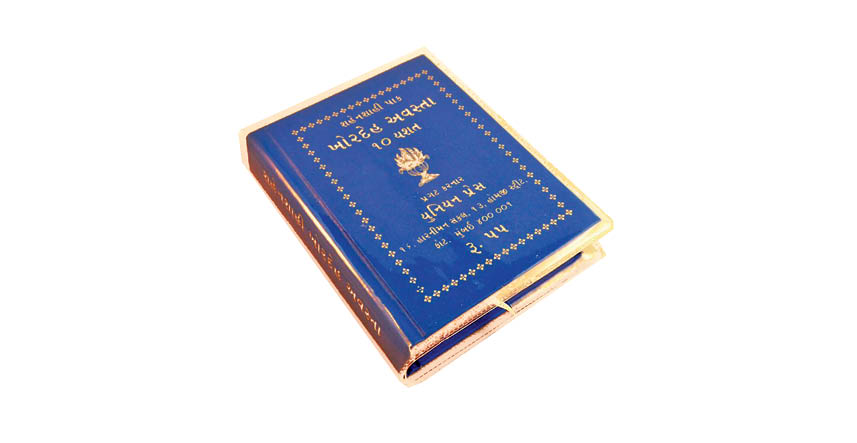Daisy P. Navdar is a teacher by profession and a firm believer in the efficacy of our Manthravani. She is focused on ensuring that the deep significance of our prayers is realized by our youth. She credits her learnings and insights, shared in her articles, to all Zoroastrian priests and scholars whose efforts have contributed towards providing light and wisdom for all Zarthostis.
If we take a detailed look at the sequence in which our daily prayers flow, we can’t help but realize that they have an infallible logic of their own. Let us examine this. We first do our kusti, which is nothing but a means of cleansing our spiritual body. Then, we do the Sarosh Baaj, this helps to strengthen our astral body or what we call our ‘Khoreh’. This is followed by reciting the Geh, which is in reverence of the time of the day during which we offer the prayers. Then we recite the Khorshed and Meher ni Nyaish which pays obeisance to the mighty Sun. And after this, we say the Vispa Humata – it is this prayer that we shall examine today. Here is a brief translation of the Vispa Humata:
All good thoughts, good words and good deeds,
Are produced with good intelligence.
All evil thoughts, evil words and evil deeds,
Are NOT produced with good intelligence.
All good thoughts, good words and good deeds,
Lead the doer to heaven.
All evil thoughts, evil words and evil deeds,
Lead him to hell.
The result of all good thoughts, good words, good deeds is heaven.
Thus, it is manifest to the righteous person.
Just as a mother gives instructions to her children or a teacher to her students, here, for this prayer also, repetition is key. There are so many things our parents and teachers are constantly reminding us about. Switch off your mobile phone, complete your homework, study daily, pay attention in class… the list is endless. Despite this daily tirade, we still end up missing a couple of things we need to do.
Vispa Humata is a reminder, it speaks of all the benefits which accrue to us by following the holy tenets of Humata, Hukata and Huvarshta. It is indeed a short prayer which must be recited thrice. However, it is unique as not only is it a reminder to nurture Good Thoughts, Words and Deeds but also a warning as to the effect the opposite can have on us. It warns us of the consequences that Evil thoughts, words and deeds can bring about.
So, just as we set our alarms to wake up in time and go forth into a fruitful day, so also, the Vispa Humata is our wake up call to sincerely follow the golden trio of Humata, Hukata, Huvarshta, Good Thoughts followed by Good Words which finally give rise to Good Deeds!
- જેજે હોસ્પિટલના પારસી વોર્ડમાં નવરોઝની ઉજવણી - 5 April2025
- ઝોરોસ્ટ્રિયન વિમેન્સ એસોસિએશન ઓફ સુરત દ્વારા પાણી બચાવો પર્ફોર્મન્સ - 5 April2025
- આવાં યઝદના પરબની ઉજવણી - 5 April2025
